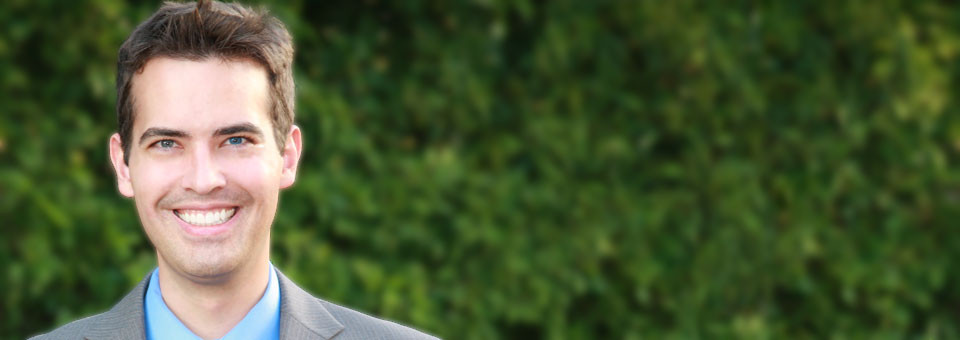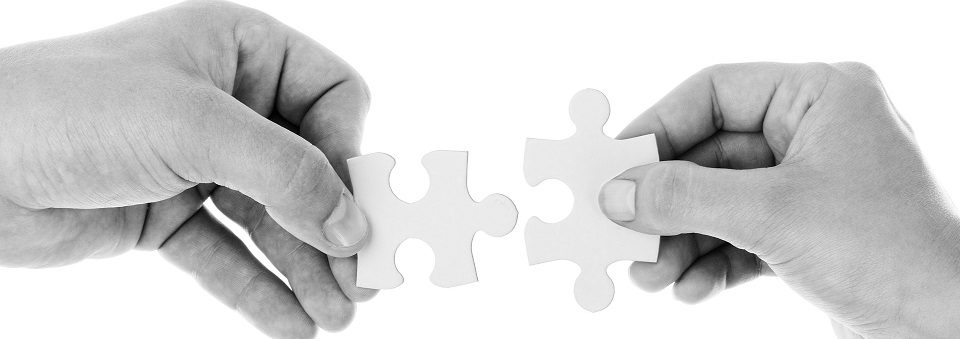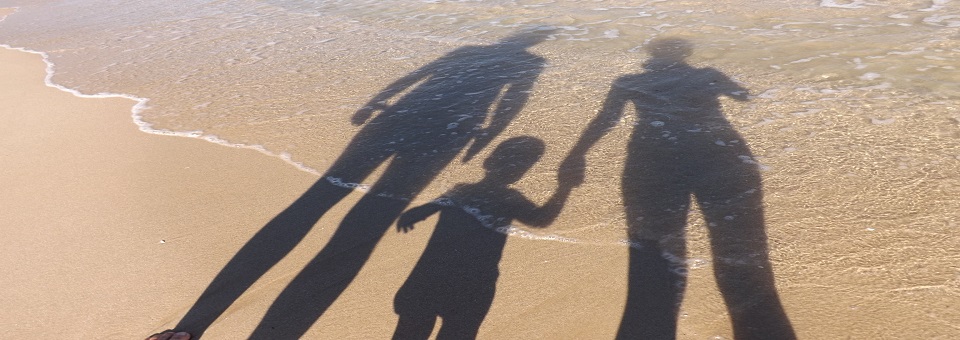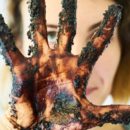Popular Posts
Want to become a patient?
Upcoming Events
Most Recent Articles
Reassurance Seeking in OCD
Although contamination OCD and washing rituals often go hand-in-hand, many rituals in this domain do not actually involve cleaning or disinfecting. These more subtle rituals are often based around reassurance seeking behaviors that become ingrained in everyday habit. In the context of exposure and response prevention (ERP), reassurance seeking OCD rituals are just as important to address as washing rituals. If you resist washing rituals but continue to engage in reassurance seeking rituals, your recovery will eventually stall (or perhaps never get started at all). Do you believe that knowledge is power? Do you aspire to optimum health? Do you believe that an ounce of prevention is worth a pound of cure? If so, you may be vulnerable to reassurance seeking rituals. Information-Seeking vs. Reassurance Seeking Reassurance seeking rituals involve mentally preparing for potential threats. These compulsions are often based around behaviors such as asking questions or looking up information about disease prevention, transmission, incubation, or symptoms. Because reassurance seeking rituals are subtle, they might easily slip past you. You might be thinking, “These behaviors are not rituals. They’re simply responsible behaviors.” Fortunately, not all information-seeking is compulsive. When I worked at the St. Louis Behavioral Medicine Institute (SLBMI), Alec Pollard discussed the differences between information-seeking and reassurance seeking. Because information-seeking behaviors are used...
Read MoreOCD & Contamination: Washing & Cleaning Compulsions/Rituals
OCD: Common Compulsions In my last post about OCD, I discussed reasons why people do rituals. This time, I’ll identify specific rituals that are common in obsessive-compulsive disorder (OCD) characterized by a fear of germs, contamination, diseases, and other health-related ills. OCD: Hand-washing Rituals/Compulsions Hand-washing is a very common ritual and typically involves prolonged and frequent hand-washing behaviors. These washing behaviors may involve a particular sequence, order, or rhythm. Some individuals count while washing or wash in multiples of particular numbers. If these washes are interrupted, the individual may feel the need to repeat the entire sequence to make sure that the wash has been performed “properly.” Although people with OCD may think that their washing rituals are primarily for hygienic reasons, the true function of washing rituals is to reduce feelings of distress, anxiety, doubt, and vulnerability. The frequency and intensity of these washes and the use of abrasives or antibacterial soap often results in dry, reddened, or cracked skin. In some cases, washing causes bleeding, scarring, or other skin damage. Washing continues until the person feels less anxious about their particular OCD feared outcome. OCD: Showering Rituals/Compulsions Similarly, individuals with health-related OCD may take long, frequent showers. Showers are often taken using scalding hot water. If bathing, some individuals elect to literally...
Read MoreOCD & Contamination: Reasons Why People Do Rituals/Compulsions
In my last post, I identified several idiosyncratic feared outcomes in OCD that are associated with contamination/health-related obsessive-compulsive disorder (OCD). Obsessions are intrusive, recurrent, and distressing thoughts, impulses, or images related to these feared outcomes. Today, I’ll discuss the function of compulsions. Why do people with OCD do rituals? Compulsions, or rituals, are the other main feature of OCD. These physical and/or mental behaviors reduce the anxiety brought on by obsessions and reflect one’s attempt to avoid, reduce, or prevent certain feared outcomes from occurring. Ask someone with a fear of contamination, disease, illness, or germs why they ritualize; and they will likely tell you that rituals serve as a means to destroy, neutralize, or escape from potential pathogens. As a consequence, rituals common to health-related OCD often incorporate washing, cleaning, disinfecting, and sanitizing behaviors. Excessively long OCD-driven shower routines can become the norm. Continuous OCD doubt and uncertainty about whether or not one’s hands are sufficiently “clean” perpetuates these rituals. Although the obvious function of washing-related compulsions is to neutralize health-related threats, this is not the “true” reason why people wash. Washing actually serves the more subtle function of changing a feeling. Rituals are attempts to shift one’s mental state: to exchange feelings of threat for feelings of safety. Compulsive behaviors neutralize a...
Read MoreOCD & Contamination Fears: Feared Outcomes (Example: HIV/AIDS)
In my last post, I identified several types of obsessions that are associated with contamination/health-related obsessive-compulsive disorder (OCD). These include the fear of: Germs and getting sick. Making others sick. Developing an incurable illness in the future. Experiencing extreme and uncontrollable disgust or distress. Other unwanted negative outcomes related to the spread of germs, contaminants, or other agents. Given the idiosyncratic nature of obsessive-compulsive disorder (OCD), I thought it would be useful to talk a bit more about feared outcomes. Feared outcomes can be very different for different people, even when you’re dealing with the same surface obsession. Moreover, sometimes the immediate feared outcome (getting sick) differs from the ultimate feared outcome (dying from a disease). Consider the OCD fear of being infected with HIV. Individuals who experience this health-related OCD obsession often experience distress related to very different feared outcomes. OCD: Feared Outcomes Related to AIDS/HIV Obsessions Many are afraid of death and fear dying from AIDS. Others are afraid of pain and discomfort during the years preceding death. They may fear symptoms of the illness or even the side effects of treatment (e.g., nausea). Others fear that if they were to contract HIV that they would become severely depressed. It is the thought of a potentially chronic depression that is intolerable. Some...
Read MoreContamination & Health-related OCD: Obsessions, Fears, & Worries
What are common obsessions in contamination/disease/illness/health-focused OCD? OCD: Fear of Getting Sick Contamination- or health-related OCD is associated with persistent worries about one’s health or the health of loved ones. Common obsessions in contamination-related OCD include the fear of getting sick with a serious illness like rabies, ebola, H1N1 (swine flu), Creutzfeldt-Jakob disease, mad cow disease, hepatitis, or avian influenza. Other frequent obsessions focus on the fear of contracting sexually-transmitted diseases (STDs) such as AIDS/HIV, herpes, HPV, syphilis, or chlamydia. Chronic progressive diseases, like AIDS, that have no known cure tend to evoke extreme anxiety. Individuals with OCD fear both getting sick and the negative consequences associated with illness, which may range from pain and discomfort to serious repercussions such as death, sterility, or deformity. Some individuals have a strong fear of vomiting (also known as vomit phobia or emetophobia). OCD: Fear of Making Others Sick Other individuals’ obsessions focus almost exclusively on potentially infecting other people. These individuals may be convinced that they are carriers for certain illnesses and may worry that they will spread disease to children, loved ones, or strangers. This type of OCD is common in parents (especially mothers) who are afraid of infecting their children. Because OCD is based on fear rather than logic, these worries tend to persist...
Read MoreOCD: Screaming, Blurting Out Obscenities/Cursing/Profanity, & Other Unwanted Impulses
Question: I’m a teenager and keep having OCD symptoms related to impulse control. I often worry that I’ll lose control and scream or blurt out obscenities. I am especially triggered in quiet public places like classrooms, churches, and movie theaters. I have never actually acted on my impulses and cursed in public, but I still feel very anxious whenever these thoughts occur. Do you have any tips for me? These types of symptoms are very similar to other OCD symptoms in which people worry about losing control and acting on unwanted impulses. Most typically, these types of thoughts attach to situations that are considered morally or socially taboo. Related OCD symptoms include fears about losing control and: Harming a loved one (most often fear of harming a child, spouse, or parent). Killing a loved one (i.e., stabbing, shooting, suffocating, or poisoning). Killing or harming the self (i.e., suicide obsessions, fear of jumping from high places). Engaging in inappropriate sexual behavior (e.g., the urge to expose one’s genitals in public, undress in public, or touch another person’s genitals). Engaging in socially inappropriate behavior (e.g., cursing/using profanity/dirty words, insulting others, making negative comments, calling people names). Engaging in criminal behavior (e.g., theft/stealing, arson, vandalism, rape). Confessing non-committed criminal activity (e.g., talking about terrorism while at the...
Read MoreDoes Non-Avoidance = Exposure? No! Anxiety Disorder Treatment Principles for OCD, Panic, Social Anxiety, & Phobias.
Anxiety Principle of the Day: Non-Avoidance is not equivalent to exposure. Although exposure is predicated upon the purposeful non-avoidance of anxiety-related stimuli, non-avoidance of anxiety triggers is not equivalent to exposure. What is non-avoidance? I liken non-avoidance to being in a particular place at a particular time. Essentially, it involves being in a situation in which your anxiety is triggered by proximity to anxiety-related cues. Non-avoidance requires no action on your part aside from being physically present in the situation. As such, like a hole, it’s possible for a person to accidentally stumble into a non-avoidance exercise. Isn’t that the same thing as exposure? No. Exposure is not merely a situation, and as such, it can’t be entered into by accident. Although exposure therapy has situational elements, it is a dynamic experience that has best practices, as well as Do’s and Don’ts. It is also based on a specific “philosophy of doing” that has essential cognitive components. When done properly, exposure is a personal, deliberate, and reasoned assault against your anxiety. In contrast to simplistic non-avoidance, exposure is premeditated and thoughtful, it has cognitive and emotional goals, it is prolonged, and it is grounded in pragmatic application of sound theoretical principles. That can be a tall order for individuals new to exposure. That is...
Read MoreOCD Triggers in Daily Life? Don’t Ritualize. Be Strategic! 3 Tips for Fighting OCD.
Question: I know about ERP, and I understand that OCD symptoms can be reduced by resisting rituals and then habituating to the anxiety brought on by obsessive thoughts. However…what if an obsessional thought requires no ritual? Confused! Great question. I think that in all cases of obsessive-compulsive disorder (OCD), there is some type of ongoing ritual that maintains the obsessional thought. This is because OCD is caused by threat misappraisals that are perpetuated and negatively reinforced by compulsive behaviors. As long as your compulsive behaviors remain in place, you are prevented from having the type of corrective learning experiences that are necessary for you to recover from your OCD. The reason that ERP is so effective is because it allows you to build these types of corrective learning experiences into your daily life. Sometimes a person has very obvious rituals; other times, rituals are more subtle. If you’re struggling with identifying your rituals, take a look at this list. With your example, the ritual might be mental rather than behavioral, which can make it more difficult to identify. I would ask yourself, “When my obsessive thought makes me feel anxious, what do I then do in order to escape/reduce this anxiety?” The answer is your ritual. This is the reason why trying not to...
Read MoreExposure Therapy’s Most Common Mistake: All Eggs in the Habituation Basket
Many people have an incomplete understanding of exposure therapy… …be it exposure and response prevention (ERP) for OCD, intentional mistake practice for social anxiety, or interoceptive exposures for panic disorder… This is true for exposure newbies, seasoned exposure veterans, and even some good CBT therapists. This limited understanding is based on the following flawed logic: Premise 1: Anxiety disorders involve fear. Premise 2: Fear is reduced through habituation. Premise 3: Habituation is accomplished via exposure. Conclusion: Habituation is the process by which individuals recover from anxiety disorders. Note: This conclusion is only partially correct. Exposure, when done right, is about much more than just habituation. It’s about learning to see the world in a new way and developing a different type of relationship with your symptoms. Exposure can help you challenge unhealthy, false beliefs about yourself and the world; learn to take risks and make choices that are consistent with what you want out of life; develop confidence in your ability to overcome challenges; and learn to tell the difference between you (the person) and your symptoms. The next time you complete an exposure, ask yourself, “Why am I doing this exposure?” If your only answer is “To habituate,” you might need to re-evaluate what you’re doing in therapy. What have you learned from...
Read MoreSensorimotor OCD & Social Anxiety Differential Diagnosis: “Obsessive Swallowing”
Reader Question: For the past year, I have been dealing with OCD-related sensorimotor obsessions focused on swallowing. My symptoms started during a class discussion in which I noticed myself swallow. Since then, whenever I am in a lecture or quiet place surrounded by people, I become deeply focused on my own swallowing and worry that others will notice my swallowing and then judge me. I am practicing meditation and daily exposures in which I sit down in a quiet room and intentionally invite the swallowing in. I also purposefully invite the swallowing in throughout the day, even when I am in the presence of friends. I try to be mindful of my swallowing without doing anything to avoid it or mask it. Even though my awareness of swallowing has not entirely gone away, the anxiety associated with it has decreased significantly. However, I find myself feeling impatient and worried on the random days when my OCD-related anxiety flares up. For me, the most difficult situations continue to be one-on-one conversations, especially when I notice other people swallowing after I do. This makes me worry that I am spreading the condition, even though I know rationally that this is not possible. Do you have any recommendations for how to deal with OCD-related swallowing obsessions when...
Read MorePalm Beach (South Florida) OCD Support Groups: Adults, Kids, Teens
OCD Support Groups – Palm Beach Gardens|Jupiter|West Palm Beach|Florida Attention all South Florida residents with OCD in Palm Beach Gardens, Jupiter, Juno, West Palm Beach, Boca Raton, Boynton Beach, Lake Worth, Royal Palm Beach, Wellington, Delray Beach, Pompano Beach, Fort Pierce, Port St. Lucie, Greenacres, Miami, and Fort Lauderdale. I am pleased to announce that the Center for Psychological & Behavioral Science is now sponsoring free monthly support groups for Palm Beach County kids, teens, and adults with OCD! The monthly OCD support group schedule is as follows: OCD Support Group for Kids & Teens (17 & younger) – Led by Dr. Seay Meets Monthly (specific times/dates vary based on attendee availability) Location – Our Office (address below). If you would like to help choose our next meeting date or get announcements about upcoming meeting times, you can access our sign-up form here. Upcoming meeting dates/times will also be listed on our events calendar. OCD Support Group for Adults (18 & up) – Led by Dr. Seay Usually the Second Tuesday of the Month @ 7:00pm Location – Our Office (address below). If you would like to get announcements about upcoming meeting times, you can access our sign-up form here. Upcoming meeting dates/times will also be listed on our events calendar. Our office is...
Read MoreTreatment for Body-Focused Obsessions & Compulsions in OCD (e.g., Swallowing, Breathing, Blinking)
This post is the last in a series of posts discussing body-focused obsessions and compulsions (aka, sensorimotor, somatosensory, or somatic obsessions and compulsions) in obsessive-compulsive disorder (OCD). This series was inspired by an original article written by Dr. David Keuler for Beyond OCD. You can access Dr. Keuler’s excellent article here. Ruling out Medical Causes for Body-Focused Obsessions & Compulsions in OCD (sometimes called Sensorimotor or Somatic Obsessions) Before we begin discussing cognitive behavioral treatment for body-focused obsessions and compulsions, it is important to note that there are many non-psychological causes of physiological symptoms. Consequently, it is essential to be evaluated thoroughly by a medical doctor in order to rule out any possible physiological causes for your symptoms. If a medical disease is responsible for your issues with swallowing, breathing, blinking, or moving, the techniques I will be discussing below are inappropriate and may prevent you from getting the medical help you need. There are a variety of serious neurological conditions that can cause these types of symptoms, and it’s important that you rule these out prior to seeking a psychotherapy-based solution. In some cases, specialty medical providers might also be consulted to rule out health-related problems. For example, in the case of swallowing issues, it might be useful to consult with a physician...
Read MoreOCD Core Fears Related to Body-Focused Obsessions & Compulsions (e.g., Swallowing, Breathing, Blinking)
This post is the second in a series of posts discussing body-focused obsessions and compulsions (aka, sensorimotor, somatosensory, or somatic obsessions and compulsions) in obsessive-compulsive disorder (OCD). This series was inspired by an original article written by Dr. David Keuler for Beyond OCD. You can access Dr. Keuler’s excellent article here. OCD Core Fears Related to Body-Focused Obsessions (also called Sensorimotor or Somatic Obsessions) In Part 1 of this series of posts, I discussed the basic characteristics of body-focused (also termed sensorimotor [Keuler, 2011], somatosensory, or somatic) OCD. This type of OCD is extremely distressing and is associated with hyperawareness of particular bodily processes, urges, or sensations. Obsessions and compulsions often focus on breathing, swallowing, tongue movements, blinking, or other bodily phenomena (Keuler, 2011). In clinical terminology, obsessive-compulsive disorder is a heterogeneous disorder. This means that different people have different combinations of OCD symptoms. Despite this variability, many individuals with body-focused, sensorimotor OCD share common fears related to their symptoms. OCD worry about having the symptoms last forever (Keuler, 2011). What if my symptoms never go away, and I have to live the rest of my life like this? What if life is never satisfying again? What if I can never engage in [insert specific activity] without thinking about this? (Common examples include sleeping,...
Read MoreSensorimotor OCD Body-Focused Obsessions & Compulsions (Swallowing, Breathing)
This post is the first in a series of posts discussing body-focused obsessions and compulsions (i.e., sensorimotor obsessions and compulsions) in obsessive-compulsive disorder (OCD). This series was inspired by an original article written by Dr. David Keuler for Beyond OCD. You can access Dr. Keuler’s excellent article here. Body-Focused Obsessions and Compulsions in OCD (sometimes called Sensorimotor, Somatosensory, or Somatic Obsessions/Compulsions) As I have mentioned previously, one particularly distressing symptom of obsessive-compulsive disorder (OCD) can be hyperawareness of particular bodily sensations. Body-focused obsessions (also called sensorimotor obsessions (Keuler, 2011) or somatosensory obsessions) often feel intolerable and typically involve getting your attention “stuck” on thinking about or analyzing particular autonomic processes. Thoughts may become fixated on one’s breathing rate, heart rate, swallowing, blinking, eye “floaters”, or flickering of the visual field (Keuler, 2011). Sufferers frequently label the problem as conscious breathing/conscious swallowing/conscious blinking, obsessive breathing/obsessive swallowing/obsessive blinking, or compulsive breathing/compulsive swallowing/compulsive blinking. Although for most individuals these processes occur automatically below conscious awareness, individuals with this form of OCD find themselves acutely and frustratingly aware of their own bodily sensations. People with these obsessive-compulsive symptoms attend to how often and how “completely” these processes have occurred. For example, individuals with respiration/breathing-related symptoms often try to consciously control their breathing rates, as well as how “fully”...
Read MoreOCD Treatment (ERP & CBT): Exposure & Cognitive Restructuring
Question: To what extent would a change of mindset (e.g., changing my expectations for myself) be helpful in recovering from OCD? What is likely to happen if I delay formal treatment with a psychologist and work instead on changing my own mindset? OCD Treatment Components: Cognitive Restructuring + Exposures Regardless of whether or not it occurs in the context of formal psychotherapy, changing your mindset will be a critical component of your recovery. If you do any reading on cognitive behavioral therapy (CBT), you’ll see this referred to as “cognitive restructuring.” Devoting time to challenging and modifying your underlying belief system is essential for fighting OCD, but research on OCD indicates that this process alone will probably be insufficient if it’s not integrated with appropriate exposure-based behavioral strategies (e.g., exposure and response prevention [ERP]). OCD Treatment Delays In general, I do not advocate treatment delays. As you get older, OCD tends to become more intractable and intertwined with who you are, making it more difficult to separate yourself from your OCD. Moreover, most people find that their rituals morph and expand over time, if left untreated. Nevertheless, everyone is different with their own unique biology and experience. There is certainly no guarantee that in your particular case, your OCD will get worse over time....
Read MoreOCD Treatment: OCD vs. Me. How do I Tell the Difference?
Question: Because many of my OCD rituals are related to my professional identity, I’m worried that changing my rituals will somehow change those parts of me that I like (e.g., my personal goals and ambitions). Should I be concerned about this? Early Onset OCD in Kids & Teens (Pediatric OCD) Many people worry that by fighting their OCD, they will lose essential parts of themselves. This is particularly true for adults with obsessive compulsive disorder, who have had to deal with OCD for most of their lives. Because OCD often begins early in childhood and can have a chronic course, it can be difficult to separate yourself from your OCD symptoms. In many pediatric OCD cases, kids with OCD exhibit symptoms by age 10. Shockingly, in certain cases, even toddlers can show clinical signs of obsessive-compulsive disorder. There are some documented cases of 2-year-olds demonstrating early onset symptoms, which certainly underscores the genetic underpinnings of the illness. In early onset cases, symptoms tend to worsen when the child begins going through puberty. Not everyone develops OCD as children, however. Other individuals don’t exhibit significant obsessive compulsive symptoms until later in life (e.g., late teens/early adulthood). Regardless of the age of onset for OCD, the average amount of time between symptom emergence and treatment is...
Read More




































